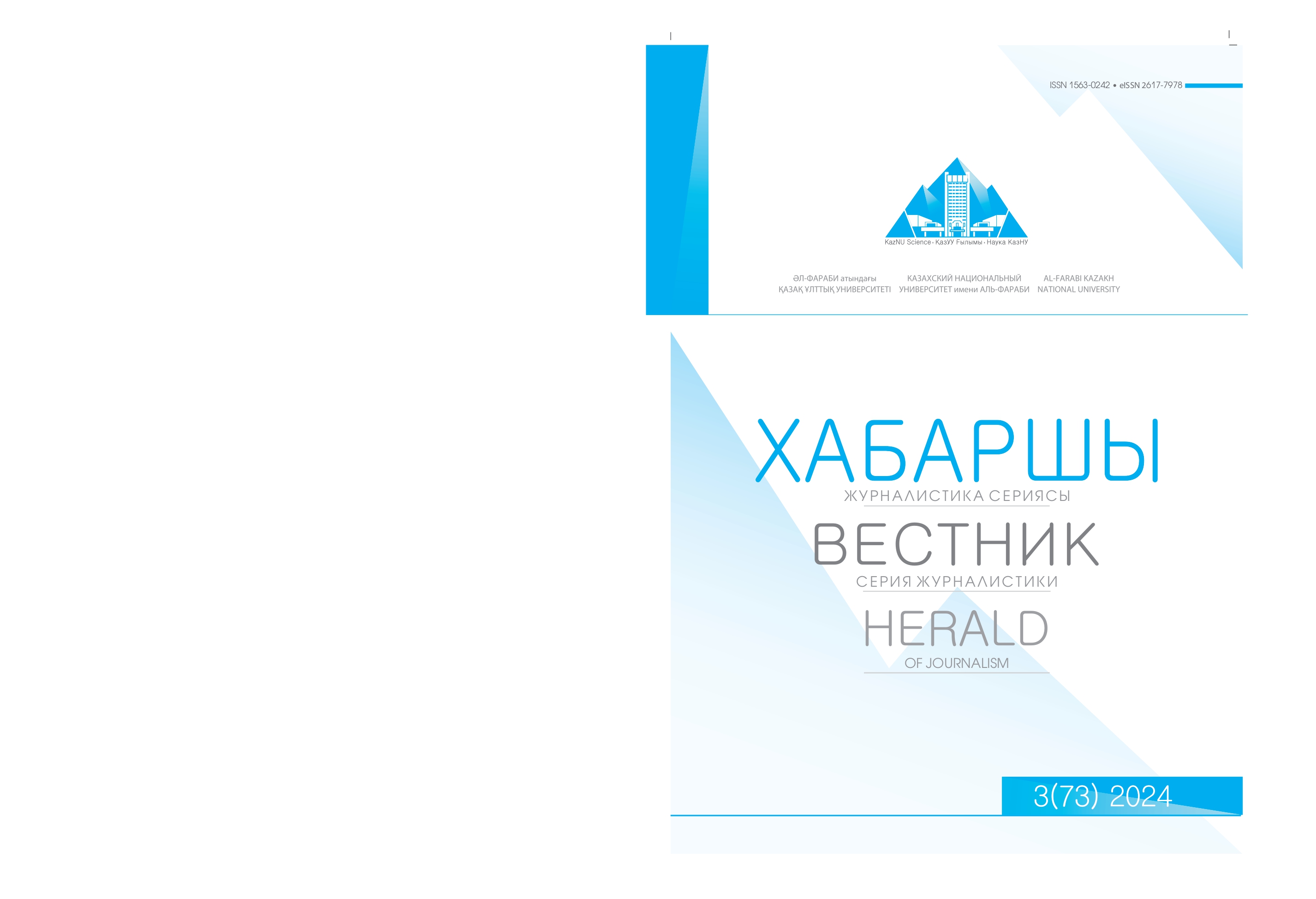Deep fakes in the digital media age: opportunities and threats
DOI:
https://doi.org/10.26577/HJ.2024.v73.i3.4Keywords:
deepfakes, AI, generated content, fake videos, digital environment.Abstract
The article is devoted to an urgent problem today – the technology of deepfakes in the context of the information society. Thanks to modern technologies and digital tools, the rapid development of artificial intelligence (hereinafter – AI), the problem of deepfakes is becoming more widespread, as their influence on public opinion, political decisions and knowledge is only increasing. Deepfakes provide opportuni- ties for spreading false information, exerting political influence, and even manipulating the image (using photos, videos and audio) of celebrities.
The aim of the article is to understand these technologies, identify the challenges and threats associ- ated with them, and develop countermeasures.
The hypothesis of the study. In the era of digital media, deepfakes are powerful tool that can be used both to create positive innovations in various fields (for example, entertainment, education, marketing, etc.) and to spread disinformation and manipulation in the media space, which poses significant threats to public and information security.
The practical significance of the work lies in the fact, that research in the field of deepfakes can contribute to the development of tools and methods for detecting and analyzing this kind of content.
Research methods include general scientific, special scientific and specific scientific methods (con- tent analysis, generalization, comparison, etc.).
The results of the study may be useful in further research of technologies deepfakes in the informa- tion space, as well as being useful in recognizing false AI-generated content.













